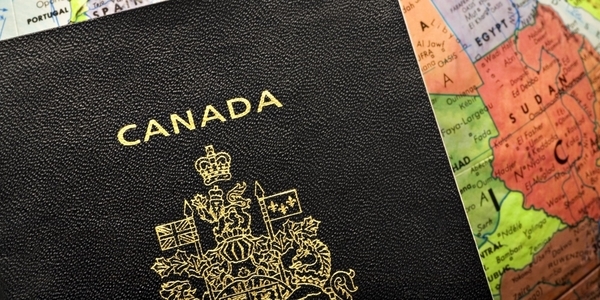This may have been a week of serious cognitive dissonance for Justin Trudeau. He apologized emotionally at a Jewish fundraiser, over Canada turning away a boatload of 907 refugees from Hitler in 1939. They had to return to Germany and many died in the Holocaust.
“It is our hope that this long overdue apology will bring awareness to our failings,” he said, “as we vow to never let history repeat itself.”
That’s when the clanging might have started. The day before, public safety minister Ralph Goodale warned asylum seekers that crossing the border from the U.S. furtively was “no free ticket” to status. Immigration minister Ahmed Hussen said he’d go to Nigeria to discourage people from coming here.
It was a slide in tone from Justin’s apology, and from his 2017 tweet: “To those fleeing persecution, terror & war, Canadians will welcome you.” Sure, contradictions are normal, but what’s galling here is that Canada may bear more responsibility for the plight of today’s refugees, than it did in 1939.
Nigeria, for instance, has been roiled by attacks from ISIS and Boko Haram, which worsened when Libya collapsed into chaos after Western bombing. Nigerians tried escaping through Libya but Europe rejected them and they’ve turned toward Canada. A Canadian general commanded that pointless NATO assault on Libya in which our forces had “an unmatched, multi-dimensional role.”
Other refugees come from the Caribbean and Central America. Canada played a central role in co-ordinating the coup that overthrew Haiti’s elected government in 2004 and the UN “occupation” that followed.
Our activity in Honduras is more recent but as foul. Canada supported the 2009 military coup. We failed to protest the farcical vote counting process in last December’s election and backed the dubious result. Honduras has run up a horrible record of murder, assassination and terror, leading to mass attempts to flee. We have nothing like this record of complicity regarding Nazi Germany.
Let me pause to say that coming to Canada isn’t the lifelong yearning of most immigrants and refugees, as if their first moment out of the womb, they ask: Which way is Canada?
Moving countries is miserable. You go to a freezing place where you don’t speak the language and are othered to hell and back. People do it for their kids, for whom it can also be hell.
A friend came in the 1970s, which she calls The Paki Years (cf. The Wonder Years) when they were taunted at recess and beaten up going to and from school. People do it from desperation. All in all, they’d rather be in Djibouti.
I also get the political problem. If you’re in politics, you’re about governing and making change, not unflinching moral displays. I’m sympathetic to these dilemmas. It’s far less ambiguous when you’re not in power and aren’t aiming at it. Dr. Martin Luther King Jr. was a moral leader (though he too had to calculate alliances). Nelson Mandela was never so much a moral leader as when in prison. After he became president, the compromises set in, including some still playing out.
The most conspicuous act of moral leadership in Canadian politics may’ve been NDP leader Tommy Douglas’s vote against imposition of martial law by Justin’s dad. But the NDP was a third place party with no prospect of power and moral leadership looked good on them, aside from being their only real option.
The refugee issue is similar to the pipeline issue. Your heart may be with fighting climate change but your heart also goes out to those who need jobs and in the middle of all that you have to weigh your chances of staying in power in order to do whatever your heart eventually settles on.
The heroic model in this nexus turns out, surprisingly, to be Angela Merkel. Germany took in 1 million refugees from the mess that resulted from the stupid, delusional U.S. attack on Iraq, which Germany had no connection to.
That’s 17 times more than Canada took in, proportionately, and Germany already had problematic ethnic conflicts plus strong anti-immigrant, neo-fascist parties. Merkel paid the price in the last election, and she’s rowed back since. But she’s never complained. She chose the right thing, and did it.
This article originally appeared in The Toronto Star.
Image: Flickr
Like this article? rabble is reader-supported journalism.




